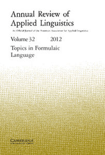
Annual Review of Applied Linguistics
Scope & Guideline
Illuminating insights in language and psychology.
Introduction
Aims and Scopes
- Methodological Innovations:
The journal emphasizes the development and application of innovative research methodologies, particularly in areas such as second language acquisition (SLA) and technology-mediated language teaching. - Social Justice and Linguistic Equity:
A core area of focus includes the intersection of language and social justice, exploring issues such as linguistic discrimination, language rights, and the role of language in identity construction. - Anxiety and Emotional Factors in Language Learning:
Research addressing the emotional dimensions of language learning, particularly anxiety, is a significant area of interest, delving into how these factors affect learners' experiences and outcomes. - Translanguaging and Multilingual Practices:
The journal promotes understanding of translanguaging and multilingual practices as vital components of effective language education, reflecting the linguistic diversity of contemporary societies. - Critical Perspectives on Language Education:
The journal encourages critical discourse around language education policies and practices, advocating for inclusive and equitable approaches to language teaching.
Trending and Emerging
- Technology-Mediated Language Learning:
There is an increasing focus on the role of technology in language learning and teaching, particularly in task-based contexts, reflecting the need to understand how digital tools can enhance language acquisition. - Transformative Justice in Language Education:
Emerging discussions around transformative justice as a methodological approach signify a shift toward addressing systemic inequalities and advocating for social change within language education. - Complex Adaptive Systems in SLA:
The application of complex adaptive systems theory to SLA research is gaining traction, highlighting the intricate interactions between learners, their environments, and the dynamic nature of language acquisition. - Anxiety and Emotional Well-Being:
Research on language anxiety and its impact on learning outcomes is trending, with scholars exploring the cognitive and emotional dimensions of language learning, suggesting a more integrated approach to learner well-being. - Critical Race Theory in Language Education:
The integration of critical race theory into language education research is an emerging theme, emphasizing the importance of race, identity, and power dynamics in understanding language practices and policies.
Declining or Waning
- Traditional Language Aptitude Research:
Although language aptitude remains an important topic, the specific focus on traditional measures and assessments of language aptitude seems to be diminishing, possibly due to a growing preference for more holistic and contextually relevant approaches. - Narrowly Defined SLA Frameworks:
Research that strictly adheres to traditional SLA frameworks is becoming less common, as scholars increasingly seek to integrate interdisciplinary perspectives and methodologies that address the complexities of language learning beyond conventional paradigms. - Individualistic Approaches to Language Learning:
There appears to be a decline in research that emphasizes individualistic approaches to language learning, as the field moves toward more collaborative and socially contextualized understandings of language use and acquisition.
Similar Journals
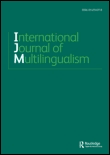
International Journal of Multilingualism
Navigating the rich diversity of human expression.Welcome to the International Journal of Multilingualism, a leading platform dedicated to advancing the field of linguistics and language studies. Established by ROUTLEDGE JOURNALS, TAYLOR & FRANCIS LTD and housed in the United Kingdom, this journal has rapidly ascended to a prestigious Q1 quartile status in both the Linguistics and Language categories as of 2023, ranking in the top 4% across related disciplines. With a remarkable Scopus ranking of #35 in Arts and Humanities and #38 in Social Sciences, it is recognized for publishing high-quality, impactful research that spans a diverse array of multilingual topics. The journal thrives on its commitment to examining the complexities and dynamics of multilingualism in contemporary society, making it an essential resource for researchers, professionals, and students alike. Although Open Access options are not currently available, the journal's rigorous peer-review process ensures that each publication contributes valuable insights into the field. Since its inception in 2004, the International Journal of Multilingualism continues to foster academic discourse and innovation, solidifying its role as a crucial outlet for scholarly work by 2024 and beyond.
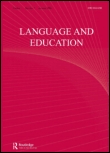
Language and Education
Unveiling the Power of Language in Educational ContextsLanguage and Education is a leading academic journal published by Routledge Journals, Taylor & Francis Ltd, specializing in the intersection of language studies and educational practices. With an impressive Q1 ranking in both Education and Linguistics and Language categories for 2023, it stands out as a crucial resource for researchers, educators, and industry professionals. Covering a wide array of topics pertinent to language acquisition, pedagogical methodologies, and culturally responsive education, this journal supports rigorous scholarship in the field. While not currently offering open access options, its contributions are vital for advancing knowledge and fostering innovation across disciplines. The journal's long-term commitment to excellence is evidenced by its high rankings in Scopus, placing it in the 94th percentile in Language and Linguistics and the 80th percentile in Education. Since its inception in 1987, Language and Education has not only tracked the evolving landscape of language education but has also actively shaped it, making it an indispensable tool for anyone invested in educational research and practice.
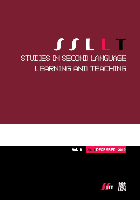
Studies in Second Language Learning and Teaching
Transforming language education with interdisciplinary approaches.Studies in Second Language Learning and Teaching is a premier open-access journal dedicated to advancing research and scholarship in the fields of education, linguistics, and language acquisition. Published by ADAM MICKIEWICZ UNIVERSITY, KALISZ, this journal has consistently achieved high acclaim, reflected in its impressive Q1 rankings in both Education and Linguistics and Language categories for 2023. With a robust focus on innovative methods, effective pedagogical strategies, and interdisciplinary approaches, Studies in Second Language Learning and Teaching aims to facilitate dialogue among researchers, educators, and practitioners, fostering a deeper understanding of language learning and teaching in diverse contexts. Since its transition to open access in 2011, the journal has expanded its reach, providing valuable resources and research findings to a global audience. With an exceptional Scopus ranking placing it in the top percentiles across multiple categories, this journal stands as a crucial platform for the dissemination of ground-breaking research in second language education.
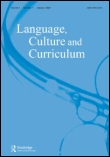
Language Culture and Curriculum
Elevating Language Learning in Cultural ContextsLanguage Culture and Curriculum is a premier academic journal published by Routledge Journals, Taylor & Francis Ltd, dedicated to advancing knowledge in the fields of Education and Linguistics. With a distinguished history since 1988 and converging through to 2024, this journal is highly regarded, reflecting its exemplary standing with a 2023 Q1 ranking in both Education and Linguistics. Currently among the top 3% of publications in Language and Linguistics and ranked 27th in Social Sciences, Language Culture and Curriculum fosters the exploration of language education within diverse cultural contexts. Through rigorous peer-reviewed research, it serves as an essential platform for researchers, educators, and policymakers alike, promoting innovative practices and theoretical frameworks in language teaching and curriculum development. Although it does not offer Open Access, the journal remains an invaluable resource in academic circles, supporting scholarly discourse and advancing educational methodologies.

Colombian Applied Linguistics Journal
Exploring the richness of language in Latin America.Colombian Applied Linguistics Journal, published by UNIV DISTRITAL FRANCISCO JOSE DE CALDAS, serves as a vital platform for the advancement of knowledge in the field of applied linguistics, particularly within the Latin American context. Since its inception in 2003, the journal has embraced an Open Access model, ensuring that cutting-edge research is readily accessible to scholars, practitioners, and students alike. With a focus on topics including language acquisition, language policy, and bilingual education, the journal contributes to the understanding of linguistic diversity and its practical applications in educational settings. The Colombian Applied Linguistics Journal is dedicated to fostering dialogue and disseminating research that bridges theory and practice, thus playing a crucial role in shaping contemporary discourses in linguistics and education. Located in Bogotá, Colombia, the journal encourages submissions from both national and international authors, enhancing its reputation as a key player in the global linguistic community.
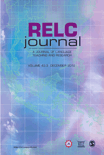
RELC Journal
Elevating Academic Discourse in Language StudiesRELC Journal, published by SAGE Publications Ltd, stands as a leading platform in the fields of Education and Linguistics, boasting an impressive Q1 ranking in both categories according to the latest metrics. Established in 1970 and continuing its commitment to academic excellence through 2024, the journal features rigorous peer-reviewed research that explores the intersections of language, culture, and pedagogy. With a notable Scopus ranking that places it in the 98th percentile for both Language and Linguistics (Rank #16/1088) and Education (Rank #91/1543), the RELC Journal is essential for scholars, educators, and practitioners seeking to contribute to and stay abreast of cutting-edge developments in their respective fields. Although currently not open access, the journal remains accessible to a diverse audience and invites contributions that challenge conventional perspectives and inspire innovative practices in language education.
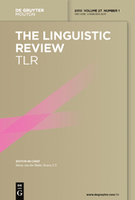
LINGUISTIC REVIEW
Advancing Linguistic Inquiry, One Article at a Time.LINGUISTIC REVIEW is a prestigious academic journal published by De Gruyter Mouton that has established itself as a leading platform in the field of Linguistics and Language. With an impressive impact factor and categorized in the Q1 Quartile for the year 2023, this journal ranks within the top tiers of its discipline, indicating its influential contributions to linguistic research. Covering an extensive range of topics from theoretical frameworks to applied linguistics, the journal aims to foster scholarly dialogue and advance the understanding of language in its myriad forms. Researchers and students alike will benefit from the rigorous peer-review process and the availability of in-depth studies published from 1981 onwards. While the journal is not open access, it is renowned for its exceptional quality and relevance in both the Arts and Humanities and Social Sciences classifications, with Scopus rankings placing it in the top percentile of its peers. By offering insight from leading scholars, LINGUISTIC REVIEW remains an indispensable resource for those who are passionate about linguistic inquiry and its real-world applications.

Linguistica Pragensia
Connecting Scholars through Open AccessLinguistica Pragensia, an esteemed journal published by Charles University Prague, Faculty of Arts, serves as a vital resource in the field of linguistics and language studies. Since its inception, this open-access journal has fostered scholarly communication and exchange, promoting research excellence in various linguistic disciplines. Its international standing is reflected in its Q3 ranking in the 2023 category of Linguistics and Language and its strategic position within Scopus, boasting ranks in both Arts and Humanities and Social Sciences streams. The journal is committed to publishing innovative research from established scholars and emerging voices, contributing to the dialogue surrounding significant linguistic issues and developments. With its base in the culturally rich Czech Republic and an open-access model since 2015, Linguistica Pragensia remains a leading venue for researchers, professionals, and students seeking to engage with contemporary linguistic scholarship.
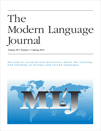
MODERN LANGUAGE JOURNAL
Connecting Researchers and Educators in the Language CommunityThe MODERN LANGUAGE JOURNAL, published by WILEY, stands as a premier academic resource in the field of linguistics and language studies. With its strong legacy dating back to 1916, this journal has evolved to address contemporary issues and trends in language learning, teaching, and research. It holds a prestigious Q1 ranking in both Linguistics and Language categories as of 2023, reflecting its high impact and relevance in scholarly discourse, supported by notable Scopus rankings that place it in the top percentiles of its field. The journal serves as an essential conduit for researchers, educators, and students seeking to contribute to and stay abreast of advancements in language education and linguistic theory. Although it does not currently offer open access options, the journal remains committed to disseminating significant findings that inspire innovative methodologies within the realm of modern languages.

Chuzhdoezikovo Obuchenie-Foreign Language Teaching
Advancing Research in Foreign Language PedagogyIntroducing Chuzhdoezikovo Obuchenie - Foreign Language Teaching, a prominent journal published by NATSIONALNO IZDATELSTVO AZ BUKI, dedicated to the field of foreign language education. With its ISSN 0205-1834 and E-ISSN 1314-8508, this journal aims to provide a comprehensive platform for researchers, educators, and practitioners to share insightful studies, innovative methodologies, and transformative practices in language teaching. The journal is based in Sofia, Bulgaria and is strategically positioned to contribute to the discourse on language acquisition and pedagogy, targeting a global audience interested in enhancing foreign language competencies. Although specific impact factors and H-index data may be unavailable, the journal's commitment to quality and relevance in the field is evident through its rigorous peer-review process, ensuring that published works meet high academic standards. Emphasizing accessibility and inclusivity, Chuzhdoezikovo Obuchenie invites submissions that reflect contemporary challenges and advancements in language education, making it an essential resource for anyone invested in the future of multilingual instruction.